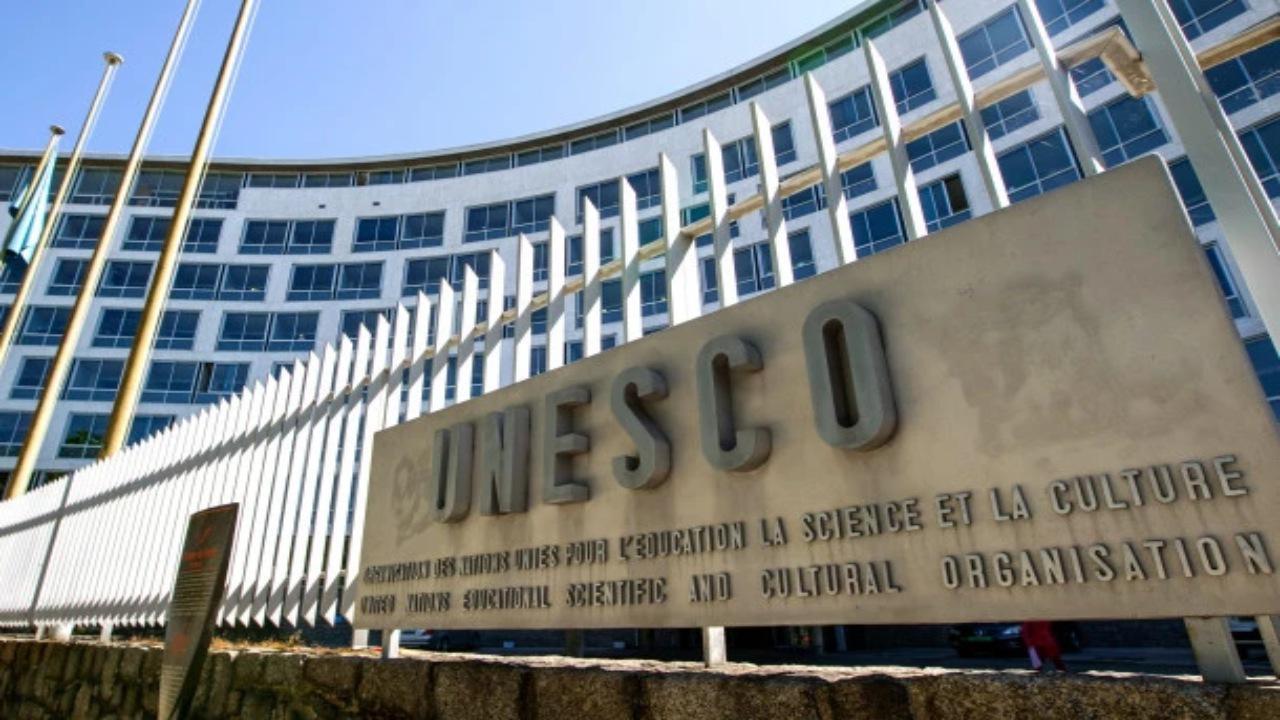UN cultural and scientific agency UNESCO announced Monday that the United States plans to rejoin and pay more than $600 million in back dues after a decade-long dispute sparked by the organization's move to include Palestine as a member

File photo
UN cultural and scientific agency UNESCO announced Monday that the United States plans to rejoin and pay more than $600 million in back dues after a decade-long dispute sparked by the organization's move to include Palestine as a member.
ADVERTISEMENT
U.S. officials say the decision to return was motivated by concern that China is filling the gap left by the U.S. in UNESCO policymaking, notably in setting standards for artificial intelligence and technology education around the world.
U.S. Deputy Secretary of State for Management and Resources Richard Verma submitted a letter last week to UNESCO Director General Audrey Azoulay formalizing the plan to rejoin.
Applause rang out in the solemn UNESCO auditorium as Azoulay announced the plan to ambassadors at a special meeting Monday, and delegate after delegate stood up to welcome the news and the new influx of money. The return of the U.S., once the agency's biggest funder, is expected to face a vote by its 193 member states next month, according to a UNESCO diplomat.
The decision is a big financial boost to the United Nations Educational, Scientific and Cultural Organization, known for its World Heritage program as well as projects to fight climate change and teach girls to read.
The U.S. and Israel stopped funding UNESCO after it voted to include Palestine as a member state in 2011, and both countries lost their voting rights in 2013. The Trump administration decided in 2017 to withdraw from the agency altogether the following year, citing anti-Israel bias and management problems.
In his letter last week, Verma noted efforts by UNESCO toward management reform, and “decreasing politicized debate, especially on Middle East issues”. A delegation from Washington came to Paris last week to hand-deliver the letter, obtained by the AP.
Since her election in 2017, Azoulay has worked to address the reasons the U.S. left, through budget reforms and building consensus among Jordanian, Palestinian and Israeli diplomats around sensitive UNESCO resolutions.
Also read: Maharashtra: More than 1,000 snake bite cases, 14 deaths in 17 months in Raigad
The U.S. decision to come back “is the result of five years of work, during which we calmed tensions, notably on the Middle East, improved our response to contemporary challenges, resumed major initiatives on the ground and modernized the functioning of the organization,” Azoulay told The Associated Press.
She met with Democrats and Republicans in Washington to explain those efforts, according to a UNESCO diplomat. Thanks to those bipartisan negotiations, UNESCO diplomats expressed confidence that the U.S. decision to return is for the long term, regardless of who wins next year's presidential election.
The diplomats were not authorized to be publicly named discussing the behind-the-scenes work that led to the U.S. decision.
Under the plan, the U.S. government would pay its 2023 dues plus $10 million in bonus contributions this year earmarked for Holocaust education, preserving cultural heritage in Ukraine, journalist safety, and science and technology education in Africa, Verma's letter says.
The Biden administration has already requested $150 million for the 2024 budget to go toward UNESCO dues and arrears. The plan foresees similar requests for the ensuing years until the full debt of $619 million is paid off.
That makes up a big chunk of UNESCO's $534 million annual operating budget. Before leaving, the U.S. contributed 22% of the agency's overall funding.
Undersecretary of State for Management John Bass said in March that the U.S. absence from UNESCO has strengthened China, and 'undercuts our ability to be as effective in promoting our vision of a free world.”
He said UNESCO is key in setting and shaping standards for technology and science teaching around the world, “so if we're really serious about the digital-age competition with China we can't afford to be absent any longer.”
The U.S. absence plunged the agency into financial uncertainty. UNESCO diplomats described belt-squeezing across agency programs and aggressive efforts by Azoulay to boost voluntary financing from other countries to fill gaps.
One diplomat expressed hope that the return of the U.S. would bring “more ambition, and more serenity” and energize programs to regulate artificial intelligence, educate girls in Afghanistan and chronicle victims of slavery in the Caribbean.
The diplomat said that the agency would also “welcome” Israel back if it wanted to rejoin.
The United States previously pulled out of UNESCO under the Reagan administration in 1984 because it viewed the agency as mismanaged, corrupt and used to advance Soviet interests. It rejoined in 2003.
This story has been sourced from a third party syndicated feed, agencies. Mid-day accepts no responsibility or liability for its dependability, trustworthiness, reliability and data of the text. Mid-day management/mid-day.com reserves the sole right to alter, delete or remove (without notice) the content in its absolute discretion for any reason whatsoever.
 Subscribe today by clicking the link and stay updated with the latest news!" Click here!
Subscribe today by clicking the link and stay updated with the latest news!" Click here!







